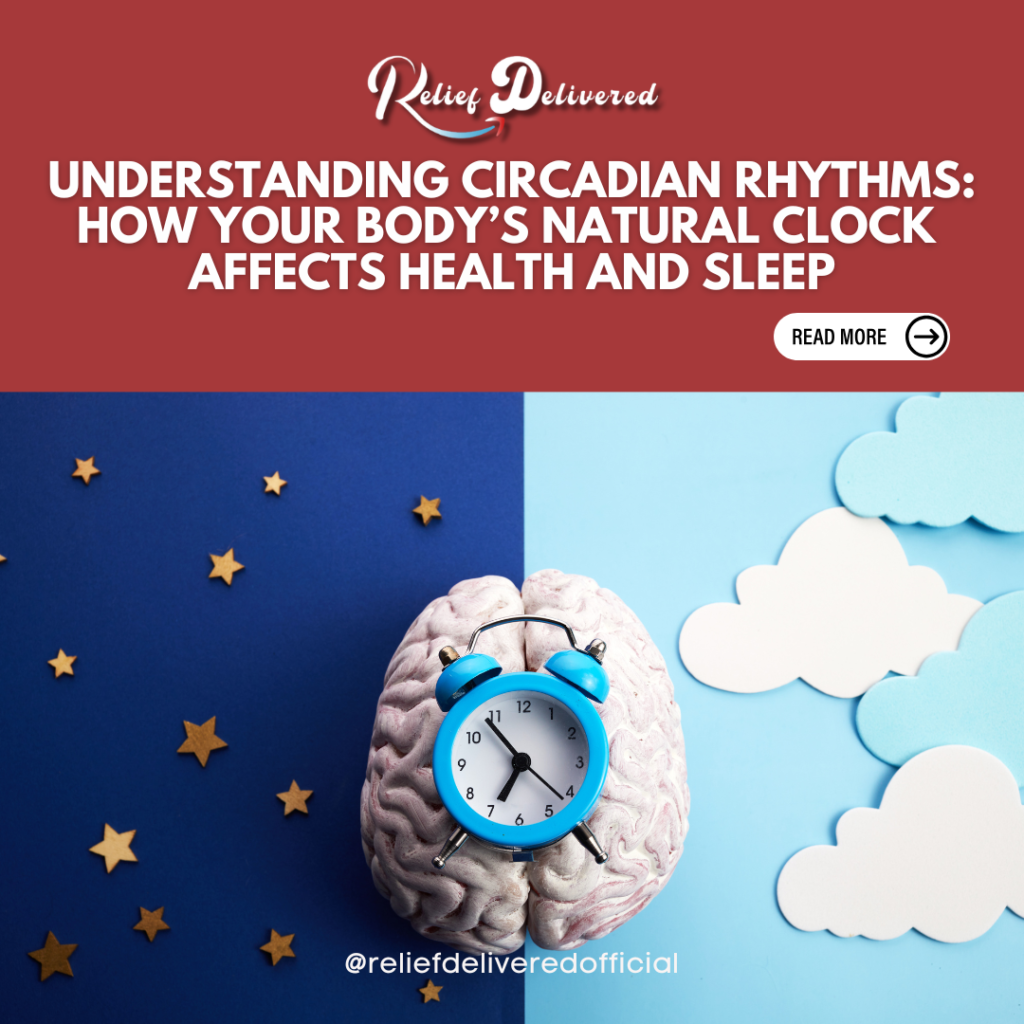
Our bodies rely on a powerful internal clock—the circadian rhythm—to manage nearly every
process, from sleep and digestion to hormone release and mood regulation. When this rhythm
aligns with our daily routines, we feel alert, energized, and able to get restful sleep. However,
disruptions to the circadian rhythm can lead to health issues ranging from insomnia and fatigue
to metabolic problems and mood disorders.
What is the Circadian Rhythm?
The circadian rhythm is a roughly 24-hour cycle that regulates physiological processes, helping
the body anticipate changes in the environment. This rhythm is influenced by cues like light
exposure, temperature, and social activities, adjusting our body’s “clock” to synchronize with
day and night. The primary regulator of this rhythm is the suprachiasmatic nucleus (SCN) in the
brain, which responds to light signals and coordinates sleep-wake patterns.
Health Impacts of a Misaligned Rhythm
When our natural rhythms fall out of sync due to factors like jet lag, shift work, or excessive
screen time, the body struggles to maintain a stable sleep-wake cycle. Chronic disruptions to the
circadian rhythm can lead to:
- Sleep Disorders: Insomnia and other sleep disorders are common in individuals with
irregular rhythms. - Metabolic Issues: Circadian misalignment has been linked to metabolic syndrome,
obesity, and diabetes. - Mood Disorders: Depression, anxiety, and mood swings often worsen with disrupted
rhythms due to irregular hormone levels. - Weakened Immunity: A stable circadian rhythm promotes immune health, so
disruptions can increase susceptibility to illnesses.
Ways to Support a Healthy Rhythm
Maintaining a regular circadian rhythm is essential for overall health. Here are strategies to keep
your internal clock on track: - Consistent Sleep and Wake Times: Going to bed and waking up at the same time every
day reinforces your natural rhythm. - Morning Light Exposure: Sunlight in the morning signals the body to wake up and
reduces sleepiness throughout the day. - Limit Blue Light at Night: Blue light from screens interferes with melatonin production,
a hormone crucial for sleep. Try to minimize screen exposure or use blue-light-blocking
glasses in the evening. - Balanced Diet and Physical Activity: Healthy meals and regular exercise help the body
function smoothly and align with natural rhythms.
How Cannabis May Play a Role in Circadian Health
Cannabis has shown potential in helping manage the circadian rhythm by influencing the body’s
endocannabinoid system, which plays a role in sleep, mood, and appetite regulation. Compounds
like THC and CBD can help reinforce natural rhythms, promoting better sleep and overall
balance. As we explore cannabis’s effects in more depth, it becomes clear that these natural
compounds can provide valuable support for a healthy circadian cycle
